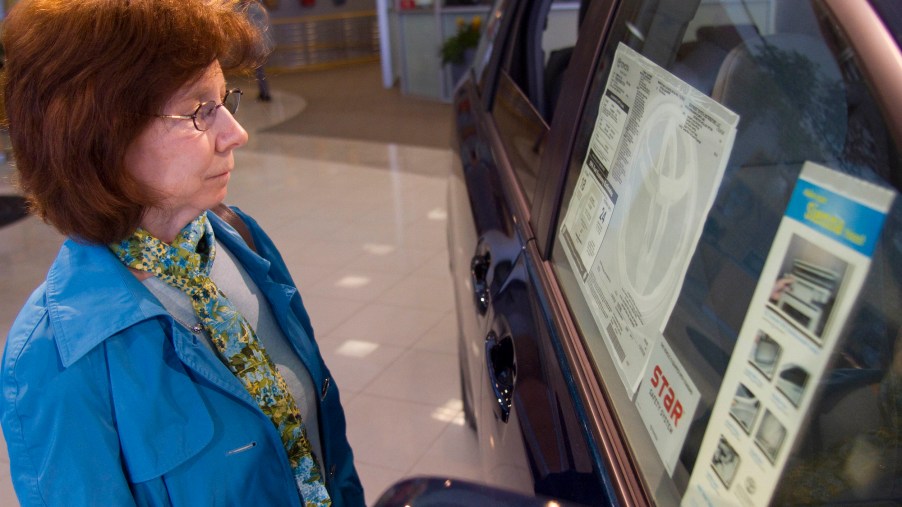
The Dealer Destination Charge: Do You Have to Pay It?
Car buying can feel overwhelming when you’re trying to get the best price. The manufacturer’s suggested retail price, or MSRP, isn’t the final price you end up paying. There are usually several fees and additional costs like the dealer destination charge.
Do you have to pay the destination charge, and what other fees can you skip? Here’s a look at some of these individual costs.
Fees you can avoid or negotiate
Luckily, there are some fees you can avoid or reduce. Also, some states set a maximum for fees the dealer can charge. Dealers sometimes include additional costs around the title and registration. Though you have to pay for the title and registration, you should ask to have any documentation or conveyance charges reduced, Consumer Reports suggests. If the dealer isn’t willing to reduce the fees, you can ask for extras like winter floor mats or additional accessories.
You should definitely avoid paying for other fees. Some dealers include an advertising fee on the invoice, but you shouldn’t pay that. Any fees with names like “pre-delivery inspection,” “dealer prep,” “vehicle prep,” or “vehicle procurement” should also be deal-breakers, Consumer Reports says. Those services are part of the dealer destination charge.
Dealers sometimes tack on a market adjustment fee, especially for top-selling vehicles. It would be best to ask for a discount on this fee, but dealers know that many other shoppers are already interested in buying this popular vehicle.
Dealers that offer their own loans might add on loan payment fees or customer service fees. Read the fine print before agreeing to those charges. A loan directly from a bank might have better terms.
Consumer Reports mentions there are a few add-ons that dealers try to sell to new-vehicle buyers. You don’t need to purchase any of them, including disability or life insurance, an extended warranty, rustproofing and paint sealing, interior protection, and theft protection VIN glass etching.
The dealer destination charge
Unfortunately, the dealer destination charge is one fee you can’t avoid. This is the cost the auto manufacturer charges for delivering the vehicle from the factory to the dealer. Buyers can locate this set amount in the prices listed on the vehicle’s window sticker.
The charge is an average delivery cost, so it’s usually the same fee nationwide regardless of how far the car travels from the factory, Autoblog explains. The fee includes delivery in the United States; any international shipping costs would already be included in the vehicle’s price.
The U.S. government requires that the destination charge be listed separately and regulates how the amount is calculated. This also means there should not be any additional delivery or transportation fees. The good news is that the dealer destination charge should include a full tank of gas in the vehicle.
Other required car-buying fees
Fees you can’t get out of paying are government charges, Consumer Reports says. They generally include state sales tax plus charges for transferring the title and registration. In states with sales tax, the amount is based on the new vehicle’s price minus the value of any trade-ins. The title and registration cost is usually about 1 to 3 percent of the vehicle’s price.
Though you do need to pay the dealer destination charge, you can avoid or negotiate other fees. Keep this in mind to make sure a new vehicle’s price is fair and something you feel comfortable paying.


